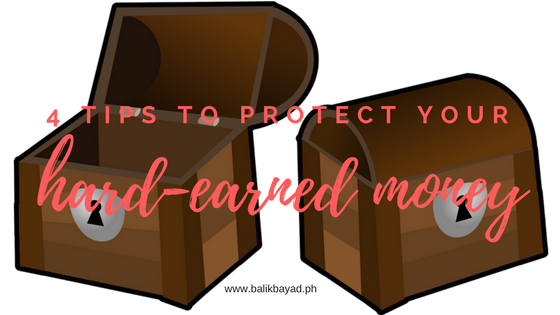“Sigurado ako marami ka ng pera.” “Wow, dollars, pautang naman.” “Ang ginhawa na siguro ng buhay ng pamilya mo, noh?”
How many times do you hear these from friends and relatives?
For most Filipinos, being an OFW is a promise of good life. You get to earn more than what you can earn here and you are now able to provide a better future for your family. On the other hand, not everyone is aware of the hard work and sacrifices you need to make to be able to give your family a comfortable life. In fact, below are some of the truths behind the OFW life:
1) No, OFWs are not rich.
There will always be success stories and former OFWs who made it big either in the Philippines or abroad. Believe it or not, most OFWs are still not living the good life despite earning more and in dollars. Some even have an existing home or auto loan with banks that they are unable to pay.
Blame it on the lack of financial knowledge, poor money management, and never-ending family issues that keep majority of OFWs from becoming millionaires.
2) Setting aside money for savings is never easy.
Did you know that only 35.8 percent of OFWs have savings? The number is increasing over the years, but it only shows that not everyone are setting aside enough money for the rainy days.
With the bills that need to be paid, a balikbayan box waiting to be filled, and everyday expenses abroad, there is little left for savings. This could be the reason why OFWs continuously work overseas to be able to finance the family’s everyday living.
3) Income is not as big as you imagined.
You might think that since OFWs earn in dollars, it means they earn more than what you earn. That is true. Unfortunately, they get to spend in dollars too. The cost of living varies per country, but one thing is for sure: it is more expensive to live in other countries than to live in the Philippines.
Yes, OFWs earn bigger income, but the cost of living is higher, which explains why they take more than one job to make ends meet.
4) It takes time to fill up a balikbayan box.
Contrary to popular belief, OFWs don’t spend an entire day shopping to send a box full of goodies back home (they would rather work since a no work day equates to money lost). Believe it or not, it will take time for them to complete their family’s bilin, to the point of scrimping or foregoing basic necessities for their family’s sake.
5) Multiple debts is the new normal.
Many OFWs are swimming in a pool of debt, even to the point of borrowing money to pay for placement and documentation fees. To pay-off existing loans. some even borrow money, thereby adding another loan in the list. This is normal for most OFWs.
6) Life overseas is not as easy as it seems.
Filipinos working overseas are not living the carefree life. Most of them have more than one job to make end meets and be able to send a bigger amount in their family back home. Many are letting go of their basic needs just to cover the expenses of their family. Even if you see them posting travel pictures on Facebook, most likely they availed of budget travel package or saved up for their much-deserved vacation for months.
In other words, being an OFW is not as easy as you think it looks. It entails a lo of hard work and sacrifice, which we all need to acknowledge.

 How many years are you working abroad? In that, say two or three years, how much were you able to save? If you don’t have enough cash to last you for at least three to six months, then perhaps you are doing something wrong along the way, at least in the financial aspect.
How many years are you working abroad? In that, say two or three years, how much were you able to save? If you don’t have enough cash to last you for at least three to six months, then perhaps you are doing something wrong along the way, at least in the financial aspect. Working overseas is not forever. There will come a time when your contract will expire, or you’ll get sick and required to go home, or the country where you’re working will experience crisis, prompting you and the thousands of Filipinos to go home. Before that happens, you want to make sure that you are prepared – and by prepared, bear in mind that savings is not enough.
Working overseas is not forever. There will come a time when your contract will expire, or you’ll get sick and required to go home, or the country where you’re working will experience crisis, prompting you and the thousands of Filipinos to go home. Before that happens, you want to make sure that you are prepared – and by prepared, bear in mind that savings is not enough.